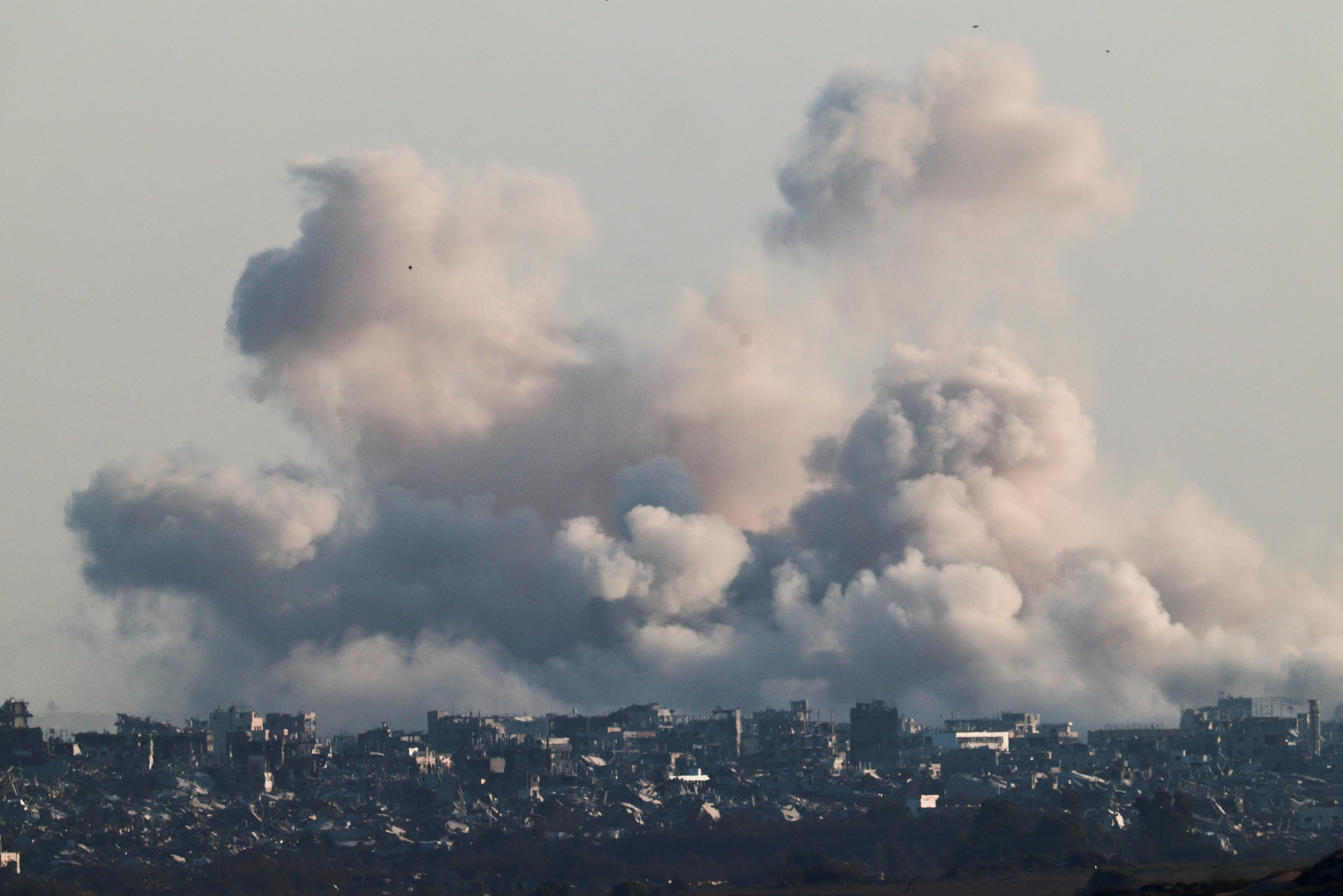Israel controls 40 per cent of Gaza City, a military spokesperson said on Thursday, as its bombardment forced more Palestinians from their homes there, while thousands of residents defied Israeli orders to leave, remaining behind in the ruins in the path of Israel’s latest advance.
Gaza health authorities said Israeli fire across the enclave had killed at least 53 people on Thursday, mostly in Gaza City, where Israeli forces have advanced through the outer suburbs and are now a few kilometres (miles) from the city centre.
“We continue to damage Hamas’ infrastructure. Today we hold 40 per cent of the territory of Gaza City,” Israeli military spokesperson Brigadier General Effie Defrin told a news conference, naming the Zeitoun and Sheikh Radwan neighborhoods. “The operation will continue to expand and intensify in the coming days.”
“We will continue to pursue Hamas everywhere,” he said, adding that the mission will only end when Israel’s remaining hostages are returned and Hamas’ rule ends.
Defrin confirmed that army Chief of Staff Eyal Zamir told cabinet ministers that without a day-after plan, they would have to impose military rule in Gaza. Far-right members of Prime Minister Benjamin Netanyahu’s government have been pushing for Israel to impose military rule in Gaza and establish settlements there, which Netanyahu has so far ruled out.
Israel launched the offensive in Gaza City on August 10, in what Netanyahu says is a plan to defeat Hamas militants in the part of Gaza where Israeli troops fought most heavily in the war’s initial phase.
The campaign has prompted international criticism because of the humanitarian crisis in the area and has provoked unusual levels of concern within Israel, including accounts of tension over strategy between some military commanders and political leaders.
“This time, I am not leaving my house. I want to die here. It doesn’t matter if we move out or stay. Tens of thousands of those who left their homes were killed by Israel too, so why bother?” Um Nader, a mother of five from Gaza City, told Reuters via text message.
Residents said Israel bombarded Gaza City’s Zeitoun, Sabra, Tuffah, and Shejaia districts from ground and air. Tanks pushed into the eastern part of the Sheikh Radwan district northwest of the city centre, destroying houses and causing fires in tent encampments.
In a heavy bombardment in the Tuffah neighbourhood, medics said five houses were damaged by Israeli strikes that killed eight people and wounded dozens more.
“The Israeli occupation targeted a gathering of civilians and several homes in the Mashahra area of the Tuffah neighbourhood — a fire belt that completely destroyed four buildings,” said Mahmoud Bassal, spokesperson of the territory’s civil emergency service.
“Even if the Israeli occupation issues warnings, there are no places that can accommodate the civilians; there are no alternate places for the people to go to.”
There was no immediate Israeli comment on those reports. The Israeli military has said it is operating on the outskirts of the city to dismantle militants’ tunnels and locate weapons.
Much of Gaza City was laid to waste in the war’s initial weeks in October-November 2023. About a million people lived there before the war, and hundreds of thousands are believed to have returned to live among the ruins, especially since Israel ordered people out of other areas and launched offensives elsewhere.
Israel, which has now told civilians to leave Gaza City again for their safety, says 70,000 have done so, heading south. Palestinian officials say less than half that number have left and many thousands still lie in the path of Israel’s advance.
‘MOST DANGEROUS DISPLACEMENT’ OF THE WAR
Displacement could further endanger the most vulnerable, including many children suffering from malnutrition, said Amjad al-Shawa, head of the Palestinian NGOs Network, an umbrella group of Palestinian NGOs that coordinates with the U.N. and international humanitarian agencies.
“This is going to be the most dangerous displacement since the war started,” said Shawa. “People’s refusal to leave despite the bombardment and the killing is a sign that they have lost faith.”
Palestinian and UN officials say nowhere is safe in Gaza, including areas Israel designates humanitarian zones.
Health officials in Gaza say 370 people, including 131 children, have died of malnutrition and starvation caused by acute food shortages, mostly in recent weeks. Israel says it is taking measures to improve humanitarian conditions in Gaza, including increasing aid into the enclave.
The war began on October 7, 2023, when gunmen led by Hamas attacked southern Israel, killing some 1,200 people, most of them civilians, and taking 251 hostages into Gaza.
Israel’s offensive has since killed more than 63,000 Palestinians, most of them civilians, according to local health officials, and left much of the territory in ruins.
Prospects for a ceasefire and a deal to release the remaining 48 hostages, 20 of whom are thought to still be alive, appear dim.
Two Democratic U.S. senators – Chris Van Hollen and Jeff Merkley – told reporters after a week-long trip to assess the situation in Gaza and the West Bank: “Based on our conversations and our observations, we came away with the inexplicable conclusion that the Netanyahu government is engaged in a campaign of ethnic cleansing in Gaza and slow-motion ethnic cleansing in the West Bank.”






Click here to change your cookie preferences